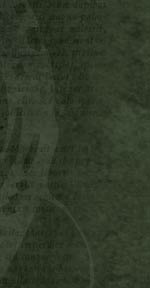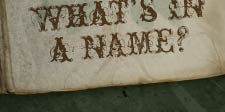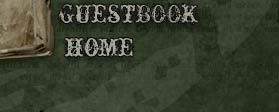- Confirmed by JK Rowling
- Very confident in its accuracy
- Moderately confident in its accuracy
- Not very confident
- Confirmed false, but I felt like posting it anyway.
Galatea Merrythought (Professor) - See "Merrythought, Professor Galatea"
Galleons - gold coin worth 17 sickles or 493 knuts. (Picture - thanks to HP Galleries)
- 15th-century sailing ship with rectangular sails on the middlemast, foremast, and rear mizzenmast. They were often used for trade between China and Mexico. (Thanks to Encarta Encyclopedia). No apparent etymological significance.
Garotting Gas - apparently, a gas that strangles its victim
- "Garotting" is the act of executing someone by strangulation.
Gerta Curd - See "Curd, Gerta"
Ghoul - a ghost
- Right from folklore. Although "ghoul" has now become synonymous with "ghost", the ghouls was originally a demon of the desert from Muslim folklore, is able to assume the shape of an animal. It is an evil spirit that robs graves and feeds on the flesh of the dead or on young children. They inhabit lonely places, especially graveyards. They also lure travelers into the desert, sometimes beguiling those traveles by prostituting themselves, and then devouring them. The Arabic ghoul of the wasteland seems to be a personification of the terror of the desert. (Encyclopedia Mythica)
Gilderoy Lockhart - See "Lockhart, Gilderoy"
Ginny (Ginevra) Molly Weasley - See "Weasley, Ginny (Ginevra) Molly"
Glumbumble - an insect that produces a melancholy-inducing treacle. It infests beehives.
- "Glum" (gloomy) + "bumble" (bumble bee)
Gnome - a garden pest
- Right from folklore. Gnomes are small, misshapen, dwarf-like creatures that dwell in the earth. The name 'gnome' was given to them by the medieval scholar Paracelcus, in an attempt to describe the most important of the earth spirits. Gnomes live under the earth, where they guard treasures. (Encyclopedia Mythica)
Golgomath - second Gurg of the giants
- Possibly from the Hebrew gulgoleth, meaning "skull."
Goyle, Gregory - one of Draco Malfoy's goons
- If you switch the first letters of Crabbe and Goyle, you get "grab" and "coil", which is what a snake does to its prey. Also, "Greg Goyle" sounds similar to gargoyle, which are ferocious-looking stone guardians of castles and cathedrals, similar to how Goyle is one of Malfoy's bodyguards.
Granger, Hermione Jane - Bookish friend of Harry and Ron.
- There are several famous women named Hermione, but J.K. named her after a character in the Shakespearean tragedy "The Winter's Tale", probably written in 1611. The first three acts deal with the jealousy of King Leontes and his persecution of his queen, Hermione. His passion brings about her supposed death and the abandonment of her infant daughter. The fourth act, set 16 years later, relates the courtship of this daughter, Perdita, by Prince Florizel of Bohemia, and the flight of the young couple to the kingdom of Leontes. There, in the last act, Perdita is recognized as Leontes's lost child. To make his happiness complete, a statue of his queen comes to life, and Hermione herself forgives him and embraces Perdita.
- In Farenhiet 451, there is a man named Granger, who has a photographic memory that he uses only for memorizing books. Candice informs me that "Granger" is the first name of a character in a book called "Frindle". Miss Granger is a prim and proper person, who always forces people to obey the rules and play by them.
- On a complete tangent, Trina on HP4GU informs me that one of Santa's elves in "Rudolph the Red-nosed Reindeer" is named "Hermie", who wants to be a dentist rather than help the Jolly Old Elf make toys...(And Hermione's folks are both dentists).
Gregory Goyle - See "Goyle, Gregory"
Greyback, Fenrir - sadistic Werewolf and servant of Lord Voldemort. Turned Lupin and maimed Bill Weasley.
- Fenrir is a being from Norse Mythology, whose name is very fitting for the bloodthirsty werewolf servant of Lord Voldemort. From Encyclopedia Mythica: Fenrir (or Fenris) is a gigantic and terrible monster in the shape of a wolf. He is the eldest child of Loki (God of Mischief) and the giantess Angrboda. The gods learned of a prophecy which stated that the wolf and his family would one day be responsible for the destruction of the world. ... Being very pleased with themselves, the gods carried Fenrir off and chained him to a rock (called Gioll) a mile down into the earth. They put a sword between his jaws to prevent him from biting. On the day of Ragnarok, Fenrir will break his chains and join the giants in their battle against the gods.
- I see no particular etymological connection with "greyback", other than that it sounds rather wolfish. Searching Google, I've found that the name "Greyback" is used for wolf characters in quite a number of video games and works of fiction. I'm categorizing this entry as "green", as I don't believe there's any further etymological connection.
Griffin - half lion, half eagle.
- Straight from Greek myth. The Griffin was a legendary creature with the head, beak and wings of an eagle, the body of a lion and occasionally the tail of a serpent or scorpion. Its origin lies somewhere in the Middle East where it is found in the paintings and sculptures of the ancient Babylonians, Assyrians and Persians. In Greek mythology, they took gold from the stream Arimaspias and, neighbors of the Hyperboreans, they belonged to Zeus. The later Romans used them for decoration and even in Christian times the Griffin motif often appears. Griffins were frequently used as gargoyles on medieval churches and buildings. In more recent times, the Griffin only appears in literature and heraldry. (Encyclopedia Mythica)
Grim - huge spectral dog that haunts churchyards. An omen of death.
- I think the grim was based on the Barghest, a monstrous dog with huge teeth and claws from the area around Yorkshire, northern England. It only appears at night. People believe that anyone who sees the dog clearly will die soon after the encounter. In Wales, they have the red-eyed Gwyllgi, the Dog of Darkness. On the Isle of Man it is called Mauthe Doog.
Grimmauld Place - Sirius' home
- Literally, "grim old place." "Grim" is appropriate, as it reflects the atmosphere of the house and references Sirius' dog form. "Auld" is old Scottish for "old."
Grindlewald - a dark wizard defeated by Dumbledore in 1945
- "Grindlewald" is the name of a town in Switzerland, near the Eiger. Furthermore, "Grendel" is the name of Beowulf's adversary, plus wald, German for "forest".
Gringots - Wizard bank run by Goblins.
- "Gringots" is an angram of "g storing". Possibly "galleon storing" or "gold storing". Or, Christina points out that it could be G + R + Ingots (bars of metal, often gold). The G and R are open for interpretation. A possibility could be "Goblin-Run".
Grunion, Alberic - featured on a chocolate frog card
- Alberic was a common name in the Medieval Europe, including two saints. One was a bishop and missionary. The other was a hermit and co-founder of the Cistercian order. Alberic is also the name of the dwarf in Wagner's ring cycle.
"Grunion" is a type of fish native to southern California, related to the mullet.
Gryffindor - one of the four Hogwarts houses; noted for bravery. Named for Godric Gryffindor.
- This definition comes from Steve Vander Ark of Harry Potter Lexicon. Gryffindor comes from French "gryffin d'or", which means "golden griffin". Griffins are half-lion, half-eagle. Griffins are a symbol of the dual nature (divine and human) of Jesus Christ, precisely because of its mastery of earth and sky. The solar associations of both the lion and the eagle favored this positive reading. The griffin thus also became the adversary of serpents and basilisks, both of which were seen as embodiments of satanic demons." - Paraphrased from Dictionary of Symbolism: Gryphon.
Gubraithian Fire - unquenchable fire
- Possibly from Latin gubern, "to govern." An unquenchable fire would certainly be a source for power.
Gudgeon, Davey - Student that nearly lost an eye from the whomping willow
- The gudgeon is the "eye" hole for the setting pins that attach the rudder to a ship.
Gurg - leader of the giants
- Possibly from Latin gurge, "whirlpool." Appropriate, as a whirlpool is the source of great power and chaos. Or more likely, Jo just chose "Gurg" because it sounded sufficiently cavemanlike to belong to a giant.
| Previous Letter | Names Index | Next Letter |











